Much has been said about what Esso may or may not be up to in the UK – is it staying, going, losing its way? So who better to tell us than the proverbial horse’s mouth – Martin Todd, the company’s executive director of fuels marketing in the UK and Ireland.
His message to the world is emphatic: “We’re staying in the UK. We have decided that this is a good business, we’ve got a very strong position in it, and we can do well in it.”
Todd took on his current role four years ago after several stints abroad, most recently as convenience retail manager for the whole of Europe.
“I returned shortly after Esso’s merger with Mobil which took place in 2000,” he says. “At that time the company was starting to work out its global strategy. My first job was to analyse the UK market, work out what was happening to it and how we were going to win in it – again.”
Since the merger, ExxonMobil’s global vision has been to be the premier fuels marketing business in the world. Having lost ground to strong competitors such as the hypermarkets in the UK and France, and what it describes as ‘petropreneurs’ (entrepreneurs who came into the gasoline business from a c-store background) in the USA, this vision has required a radical transformation. Instead of having operations such as upstream, refinery, gas, lubes and retail in each country, the company created global organisations. One of those was fuels marketing, which includes marine, industrial, retail, aviation, distributor business, and three brands – Esso, Exxon and Mobil. So no longer is Esso made up of medium-sized, high-cost, full service retail companies around the world. It now describes itself as a global retailer with operating units in several countries following similar processes, using global systems.
“The challenge of being a genuinely global retailer is huge,” stresses Todd. “The number of retailers who have made it on a global scale is quite limited. But we sell more retail motor fuel than anyone else in the world, and because of that it is logical for us to take the route of trying to go global by standardising and running the global business with local units. One of the strengths of going global is that you can use the best talents from wherever you can get them.” Hence Todd is very proud of his UK and Ireland team, which includes dealer-owned service station manager Timo Halonen from Finland; Heidi Disch, an American, in charge of company operations; and Brit David Richardson, the convenience retail manager.
The big question has been – how does Esso respond to changing consumer demands while delivering a sustainable business for the company and its retailers in a highly competitive marketplace? To this end the company has undertaken much research and analysis on the fuel retailing market which has produced target markers of what it needs to achieve if it is to live – and prosper – alongside the hypermarkets. Says Todd: “It would be fair to say that profitability in the past few years has not been good. UK hypermarkets are the key competitive fact we’re all trying to deal with. However we believe that although it is a highly competitive business, we will prosper with our partners – our retailers. The hypermarkets are very formidable competition, but we can live with that so long as we take the resolute steps.”
Those ‘steps’ form part of a retail strategy broken down into three main areas: the first being investment. “From 1979 to 1985 Esso rebuilt 1,000 service stations. We were the first to do that, the first to build bigger shops. Now it’s time to rebuild the core of that chain,” says Todd. “Is Esso going to invest in the retail business in the UK? Absolutely. In our company-owned chain we’re going to build ‘On the Runs’, typically on trunk road, transient, high-volume ‘destination’ locations. Why are we doing that? Because if fuel margins are declining, then we‘d better be building up our revenues elsewhere. On the Run is a global format – in our view the best format there is, and it’s got a long way to go. It has a lot of opportunities which we’re very excited about.
“We are also going to continue to roll out the alliance with Tesco, typically – but not exclusively – on city centre-type locations with businesses around them; and neighbourhood sites with houses around them. We will have 140 sites by year end.
“But a big, big chunk of investment is in technology. Look at any publication about Esso and you will see a fundamental belief in technology – that’s as true for retail as it is for geology in the North Sea. Technology is transforming this business and is allowing us to go global, manage at low cost, and allows us to believe that we can compete with the supermarkets at today’s lower margins.”
The next element of the strategy is to implement and expand new operating models. Esso has already established the Retail Operating Company (ROC) for company-owned sites – there are currently 100 ROC sites in the UK. It will also continue the expansion of the Tesco/Esso alliance format – a completely different operating model in which Tesco operates the store, but also manages the forecourt as an agent. Esso also introduced the ‘Net Buyer’ (Platts plus) contract to the dealer segment two and half years ago – three quarter of dealers now use it.
The third major element of the strategy is to find a way of reducing costs, by organisational restructuring – creating specialist centres in various countries that focus on repetitive processes. “We’re going to have sales organisations in one country – such as the one I head in the UK – and service provided to those sales organisations from wherever. This has involved huge cost savings but massive change,” confirms Todd. “The other part of cost reduction includes divestment of non-profitable retail sites, which has been a major programme for us. We have sold 220-240 company-owned sites in the past three years.”
A big focus for Esso in the coming months will be dealer recruitment – 200 dealer sites have gone from the network in the past two years, leaving 360 in total. “We plan to grow our dealer business, and we wish to sign new dealers now,” stresses Todd.
“What can we offer them? We are a world-class brand, and a long-term supplier in the UK with the best supply logistics. It may not have been thought important in the past, but if many of our competitors are leaving, then it becomes important for a dealer who signs a three- to five-year contract. Although some of the competitors who have left are still in the dealer business, I think you should question whether it’s for a staged withdrawal. Esso is not withdrawing.
“The second thing is that our low-cost structure guarantees competitiveness. We always were the lowest-cost supplier to the market, and we always will be. We’re prepared to take the very radical decisions – such as the restructuring – in order to guarantee we will be the lowest cost. What that should mean for a dealer, is that he is going to get a competitive price from us.”
Other things to tempt the dealer, according to Todd, are the competitive card offering with industry-leading fraud protection; and driver-controlled deliveries and automatic stock replenishment to reduce on-site operating costs. Todd claims the dealer deal – Net Buyer – is the clearest and most transparent in the market: “What you see is what you get. We have daily pricing – the dealer calls in and gets his wholesale price from us – and now has the responsibility to choose where he or she wants to price. Our contract is very clear – no smoke, no mirrors.
“Dealers also get the benefit of spin-off – how their Esso brand will be viewed when a lot of Esso sites around them get heavy investment, as is happening in London. We don’t now invest in the manner of ‘wherever you are, we’re coming’. We invest on a focused approach. In 2003 we started investing in the east and west of London and will have 55 On the Run sites by the end of this year.”
Planning is currently under way for further ‘focus’ markets, which again provides efficiencies in terms of construction contracts. “When we’ve built the focus market we start to spend the money on media, so in 2006 we should see some above-the-line spend on On the Run as a brand in the Greater London area,” confirms Todd.
The planning process also identifies the sites that are not going to make it – sites for redevelopment are based on much higher fuel volumes and are highly dependent on shop sales. “If you’ve got the location, then you put in the facilities,” says Todd. “Seventy per cent of what’s important to a customer is location – it is still the prime driver for fuel. The second thing tends to be price. Then a large number of other items jostle for third, fourth and fifth place and those include customer service, the facility, the fuel brand – the quality perception of the fuel.”
The On the Run sites offer a bright, spacious shopping environment and include a contemporary café offering freshly prepared hot and cold food, and Costa Coffee. They target busy working drivers needing quality refreshment quickly – the staff mantra is ‘fast, fresh and friendly’. They are run by store managers employed by ROC UK, which provides a structured training and career progression programme.
“Esso UK has never had company operations before. We had Dart – which allowed the retailer/agent to manage the shop using his stock. But we couldn’t see a way to manage the costs and the safety aspects. However, we think we have got the answers, a lot of which is enabled by technology such as CRUSO – a proprietary wet stock monitoring system; and GROC which enables us to run sites on a central managed basis with automated accounting, pricing and re-ordering of dry goods. It enables store managers to be more customer focused.”
Esso also launched a new fuel brand in November 2004 – Energy. “The fuel brand isn’t the most important thing customers put on their list,” says Todd. “It doesn’t mean it doesn’t have a role – it does, that’s why we launched Energy. Our view is that the Esso brand is the strongest in the UK. We haven’t spent the money in the past 10 years pushing the brand as our competitors have pushed their brands, but it has very high spontaneous awareness – because of the tiger and so on. When we launched Energy, we made sure the customer understood that ours was a quality brand. The key thing is that we may be entering a period when the fuel quality could be more important – and now we’re talking about things like biofuels.
“Our strength and our size guarantee that whatever is coming we’ll be part of it – whether it’s new fuels or new technology,” stresses Todd. “Whatever it is, we’re going to be in there. Change brings uncertainty and we are learning how to manage this better. But – we remain the strongest UK brand and we want to grow our dealer business.”





















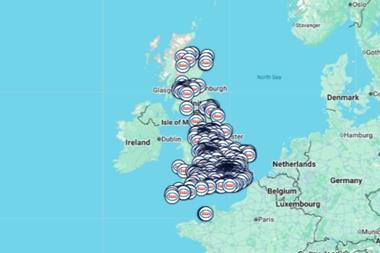
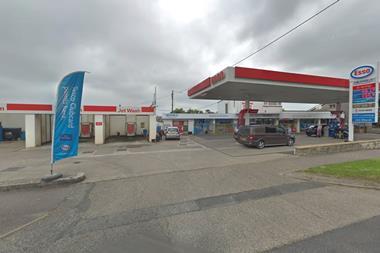
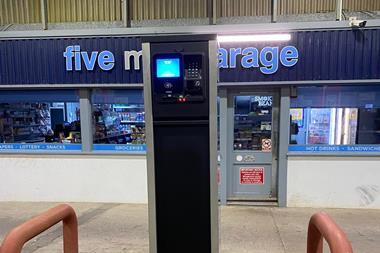
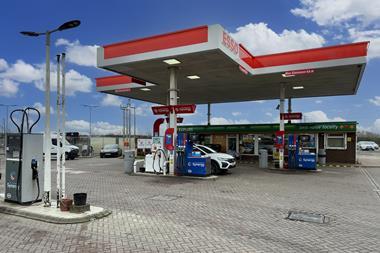

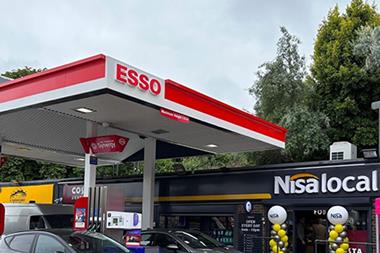

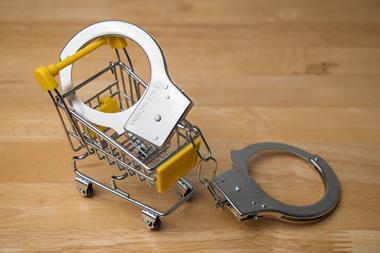
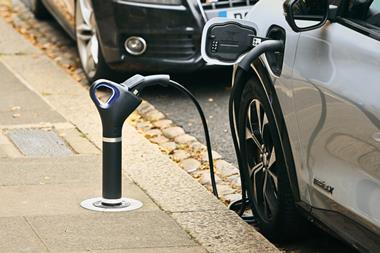
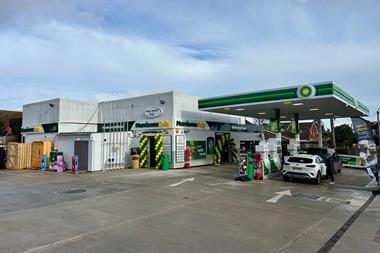
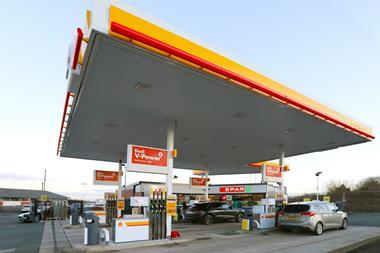
No comments yet